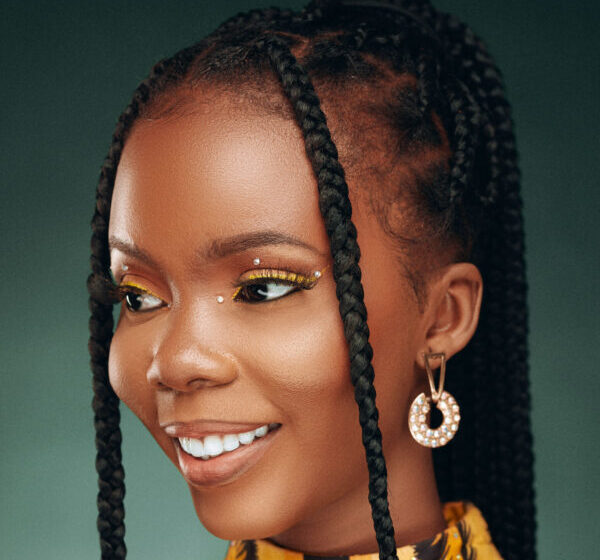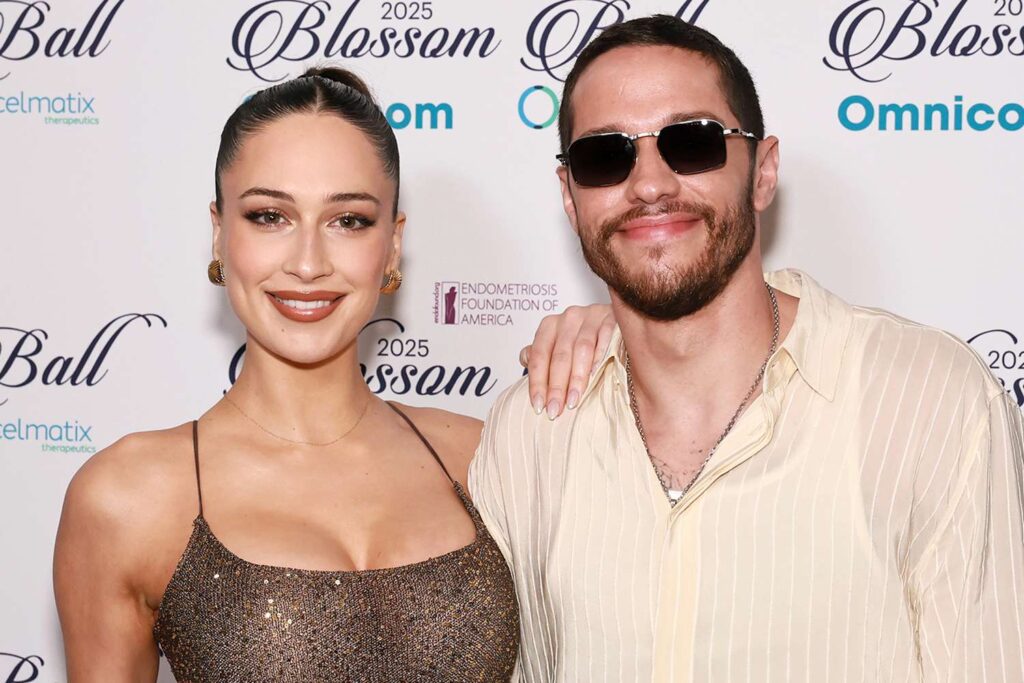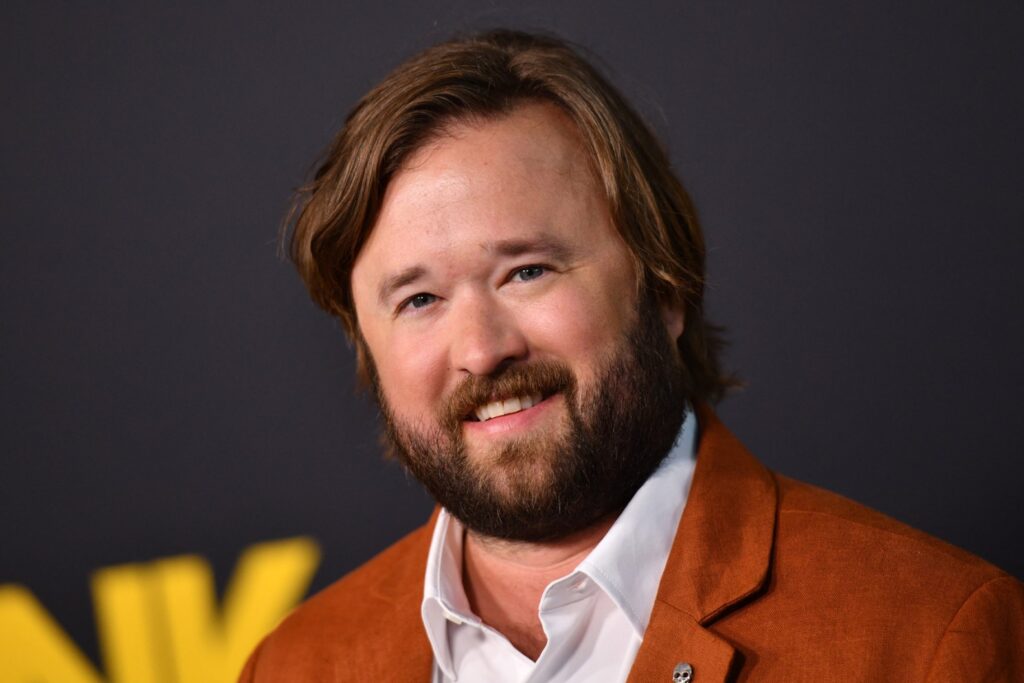INTERVIEW: Nigeria must take implementation of laws seriously to tackle child marriage – Kalunta Anthonieta

If you were asked to describe Kalunta Anthonieta in one word, the correct answer would be “optimistic.” Kalunta is a great mind who is on her way to becoming a household name in the Nollywood industry and even beyond.
The actress and women’s advocate began her acting career in the Nigerian movie industry by starring in the multiple award-winning movie, “Milkmaid” and has gone on to do greater things.
In this interview with Crisp Nigeria, the ever-positive and brilliant actress and advocate, speaks on the genesis of her career, her passion for women and girls, and the Nollywood industry, among other things.
Can we meet you?
Kalunta: I am Kalunta Anthonieta an actress and consent advocate. I studied Theatre and performing arts at Ahmadu Bello University, Zaria. I am from Abia state, but grew up in Zaria with three siblings and I’m the third child.
Tell us about your journey to the big screen
Kalunta: My journey officially began in 2018. I graduated in 2017, and at the time, I felt like I was going to immediately pursue my master’s and explore other opportunities. I wanted to act, which is why I applied to study theater arts. However, when you have great brains, you also want to give back. So, one of the things on my mind was lecturing.
During my final year, before my final exams, there was a strike. I took that opportunity to start teaching in a school, which steered me towards that career path. I continued teaching even after graduation, as I was considering going back for my master’s. However, amidst all of that, I received a call informing me that auditions were open for a movie in Taraba state.
I spoke with the director as they were actively seeking actors, but the filming location was unfamiliar to me. However, I decided to travel to Taraba to audition and it went well. I got a call on my way home. They asked if I would be comfortable playing a lead role, and that’s how my journey began.
How has your experience in the movie industry been since your debut?
Kalunta: Honestly, it’s been great. I don’t really have some of the downside stories. Of course, I’ve had my fair share of rejections, but generally, I’d say I’m really proud of the industry, and I feel like my experience has been largely positive.
I’ve met people who are interested in the things that I am, people who are willing to push me. So for me, it’s just been a very grounded experience. I’m growing, and I’m very certain at this point in my life that I’m not the actor I was in 2018.
I have grown because I’ve gotten to work with different people. So everyone is adding to your skills, and it’s just been one upskilling to another, even in terms of just building relationships within our industry and meeting certain stars that I watched as a child and having to work with some of them. It’s just a really humbling and gratifying experience, I’d say. So, it’s been very positive generally.
More entertainment stories:
Mo Abudu: What to know about Forbes 2024 businesswoman of the year
Do you think that Nollywood provides room for actors to step up in their careers and eliminate the one-hit wonder syndrome?
Kalunta: The thing about the industry, just like every other industry, is that certain things come into play. So yes, an actor might get one big break, but after that, you still need to push yourself. You still have to find a way to work your way into the industry.
Having that first break doesn’t mean you’re totally in the game because, as talented as you are, there are other talented actors and that’s one thing I’ve also come to realize. You’re not the only talented one, and you’re not the only one who is probably young. There should be something more that you bring, and that’s for you to put out there and ensure that people know what it is that you bring to the table. Sometimes the process takes time.
I strongly believe that we live in seasons, and there’s a season when you get hits, and there might also be a brooding season for you where you just need to stay and keep pruning.
There are a couple of names that we’re hearing of right now in the industry that are doing great things. You realise they have been around as far back as Super Story, which was a hit at that time, but suddenly we didn’t hear anything about them. That’s why I feel that, just like every other industry, we have seasons, and so you just have to stick to your craft as an actor and keep pushing.
The industry is doing its best, at least at this point in the Nigerian film industry’s history. I feel like more newbie actors are getting opportunities. People have a lot more guts to throw new actors into their projects, especially projects that go into streaming platforms because it wouldn’t cost as much as throwing an actor nobody knows into a cinema film, for example. They’re taking chances on new actors and young faces, so I think it’s great.
Has working as an ambassador of the Consent Awareness Network (CAN) changed your perspective on child marriage, as you mentioned in a 2021 interview, “If as a country we have a general law that defines children and the minimum age people can get married, that would be fine”?
Kalunta: In that interview, I was trying to state the fact that we are governed by both the Penal Code and the Criminal Code. On a general note, I think the penal code is very vague, which is why we had to have updated legislation like the Child Rights Act, which defines who a child is and what should and should not be done to a child.
When it comes to this updated legislation, I think two states in Northern Nigeria haven’t even domesticated them. And even for the states that have, implementation has been lacking.
I recently had to go through the Child Rights Act because I’m working on a project, and from what I understand right now, the laws are not really the problem. The laws do have loopholes, but starting with what we have now, our problem lies in domesticating and implementing them.
For the states that have domesticated the laws, how much implementation is happening? So if we say a child should not be married off, how do we ensure that a child is not being married off? How do we ensure that families are not marrying off their children? Who is making sure that grown men are not marrying children? And for the states that have not domesticated these laws, what is being done?
For me, it always comes back to the government because there’s only so much individuals can do, which is why we have a government in place. There has to be someone to enforce, especially when it comes to things like this, especially when it comes to things that affect women. Sometimes people will not change unless they’re forced to. So domesticating and implementing these laws in all 36 states and the FCT is where I think we are right now.
What have you been doing to change the narrative?
Kalunta: Solving the issue of early marriage is not something Anthonietta alone can do.
For example, for those whose reason for entering into child marriage is money, I do not have the resources to stop them. For those whose reason is religion, I also cannot interfere as an individual, and so I will always emphasize that our government has a responsibility to address it; I cannot absolve them of that responsibility.
But as an individual, I have ensured that I volunteer my time and resources to help amplify the cause. If you look at most of the things I do, they are almost always women-centric. So on a personal level, when I meet people, like I did last year in December when I had to travel to Zaria where my family is based. I was speaking to someone who felt it was acceptable for a 28-year-old to marry a 14-year-old girl and I had to enlighten him.
I have conversations with people, debate these issues with them, educate them where necessary, and sometimes they accept it, sometimes they don’t. But I just feel that when someone has a certain kind of ideology, I don’t want them to think that’s the only perspective. So I feel that as an individual, it’s also my responsibility to ensure that I meet with them and provide them with another perspective to consider because that’s the best I can do.
Through volunteering, I have also been able to provide solutions. I have a community for young girls, ensuring that girls have access to mentorship and education because they are also going to be future mothers. I feel that there’s a lot more mothers can do if they are empowered. So it starts with young girls being empowered enough to be financially and economically independent. And when they now have daughters, they also have a voice to speak up and protect their daughters.
What changes have you observed on the issue of early marriage since the release of Milkmaid?
Kalunta: To be honest, especially because Nigeria’s data is very unreliable, I don’t know the figures. But I don’t think there has been a great change. Yes, in urban areas, people are becoming more enlightened, but the areas where we’ve seriously had those problems, particularly local areas, have not evolved so much. However, I must say that this is not peculiar to Northern Nigeria alone, as other parts of the country face this problem.
So, those communities are still grappling with cases of early marriage, and that’s why I asked the question “Who’s checking?” Because if we have a system that is actively monitoring, we should have the details.
I tried to get the details earlier, and the data is still lacking. So, we can’t say for sure what the situation is. At best, we can hope, but I’m very certain that people are making efforts to change the narrative because I’ve seen a lot of work from NGOs. People are volunteering and people are advocating for change, but without adequate data, it’s hard to say we’ve made much progress at this point.
Are there new projects you are working on that you want your fans to be aware of?
Kalunta: I do have some projects I’m really excited about that are coming up, but because I do not own them, I’m not allowed to talk about them.
I have a book on consent that should be coming out sometime this year. It’s something that excites me because consent is something that I’m very passionate about, especially educating people about it.
In Nigeria, especially on Twitter, we’re always having heated debates on this issue, and it seems like people do not understand what consent is all about. So it’s dear to me to ensure that the world is safer for women out there. I say women because statistically, women face this more, but it involves both men and women generally.
I feel like when you steal, you know that you stole, but sometimes when you have these conversations on consent, you realise that they don’t even have a basic understanding of consent. So, sometimes they are overstepping. And ignorance is not an excuse, but then they don’t even know that it is wrong. And that’s one of the things the Consent Awareness Network is ensuring we do: educate people on what consent is. There shouldn’t be a world where someone is doing something that breaches consent and they don’t know.
If there’s one law or thing you’ll change in Nigeria and Nollywood respectively, what would it be?
Kalunta: For Nigeria, stepping back to our previous conversation, I’d say it is to strengthen and ensure the implementation of our laws. Because right now, we’re signing a lot of things, but we aren’t implementing them and I think that’s very important to create a society that is just and equitable for Nigerians. So, that’s the one thing I’ll change for Nigeria.
In the Nigerian film industry, to be honest, I don’t think there’s something specific I would change about the industry because I feel like the industry might not be where we want it to be in a very good place. Because it’s growing and it has people calling out its lapses, and it also has people pushing, breaking barriers, and doing groundbreaking things. Just like I said before, I’m so proud to be in the industry at this time. So really, I don’t think there’s anything I would change.
Who’s that actor you’d like to work with and project you’d like to work on?
Kalunta: I like a lot of people, and the more I watch movies and work with people, the harder it is to choose specific names. In recent times, I’ve done things that challenged me as an actor, so in terms of projects, that’s more like what I’m looking forward to playing roles that put me in very different scenarios from what I’m used to and push me as an actor.
In recent times, the Nollywood industry has witnessed a massive marital crisis among top actors. What do you think is responsible for this and what do you think can be the possible solution?
Kalunta: Firstly, I’d like to note that the increase in divorce rates isn’t a Nollywood problem. There’s no massive marital crisis in the Nigerian film industry. What there is, however, is a global and national increase in divorce rates.
As reports have shown, a few reasons for the high divorce rates include changes in how people see marriage in recent times, more financial stress, not knowing how to solve problems, and how we are more and more in each other’s lives because of social media, which affects relationships. The issue of social media affects actors more because we are in the public view, and everything we do tends to be amplified.
When it comes to fixing it, though I’m not married, and knowing that marriage has its ups and downs, all I can say is that we need to learn better ways of handling issues in relationships, and we also need to learn how to support couples better, especially when they are going through seasons like this.
What advice would you give to other aspiring actors?
Kalunta: I would emphasize on seasons. So, for an aspiring actor, I’ll say Ecclesiastes 3:11: “In His time, he makes all things beautiful.” So, hone your craft, be persistent, and wait for your time.







